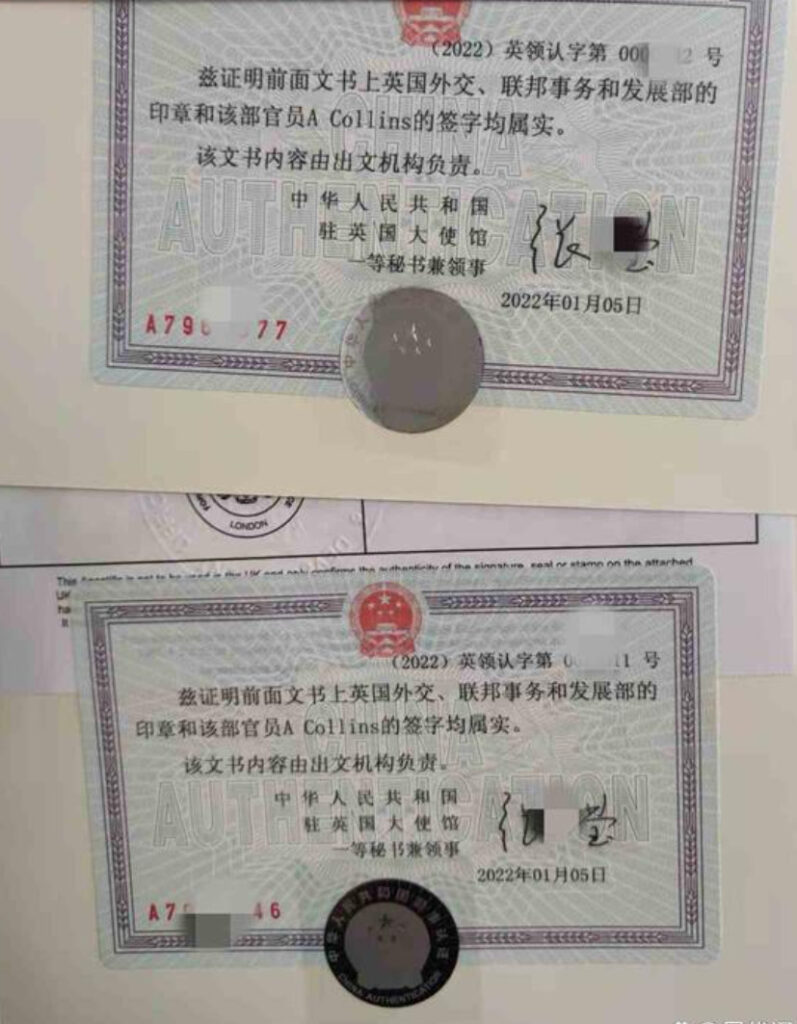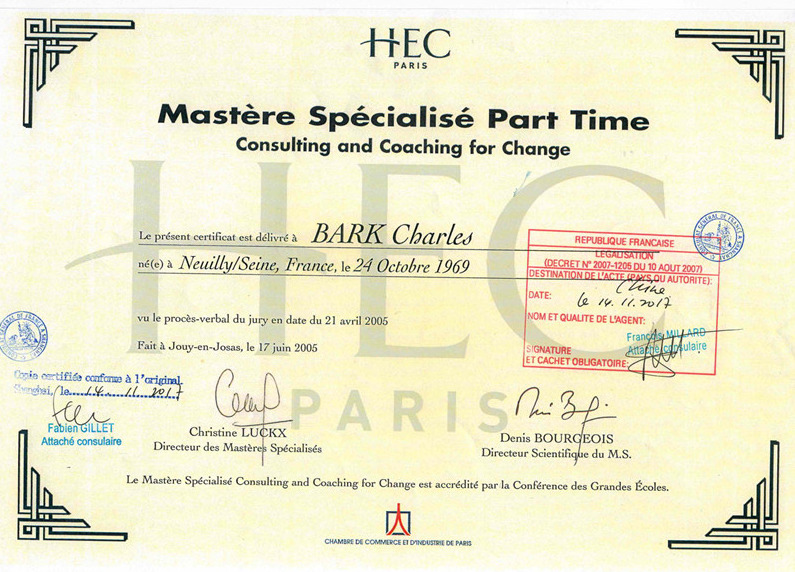Contents
As globalization accelerates and China’s market opens further, an increasing number of foreign investors are turning their attention to the world’s second-largest economy, seeking to start businesses and investment opportunities. Whether it’s establishing a Wholly Foreign-Owned Enterprise (WFOE), Joint Venture (JV), Representative Office (RO), or Foreign Limited Partnership (LP), choosing the correct business model is crucial for successful market entry. However, understanding and following the process of “Authentication in Chinese Embassy” is a key step for smooth business establishment.
This article will delve into the importance of notarization and authentication, the necessary preparations, and how to effectively complete these processes to ensure your business documents are legally valid in China. Our goal is to offer this comprehensive guide to help foreign investors understand and smoothly navigate through China’s authentication and notarization process, laying a solid foundation for success in the Chinese market.
The role of Chinese Authentication in starting a company
Notarization and authentication play a central role in the process of starting a company in China, especially regarding the legal validity and formal recognition of foreign documents. This includes ensuring that investors’ identity proofs, educational backgrounds, legal documents, and other significant business documents are officially recognized in China. This guide aims to provide foreign investors with a clear roadmap, explaining how to complete the necessary notarization and authentication steps at Chinese embassies or consulates abroad to meet the requirements of the China Market Regulatory Authority and other relevant institutions.
The Basic Concepts of Authentication in the People’s Republic of China
In international business activities, notarization and authentication are two key legal procedures essential for validating the legal effectiveness of documents across different countries. In China, whether it’s personal status proof, legal documents, or business files, they may need to go through this step to ensure their authenticity and legality are recognized by Chinese authorities.
Authentication (Consular Authentication) in Chinese Embassy or Consulate:
Authentication, or consular authentication, is a verification process that ensures an official document from one country is considered valid in another. For foreign investors, this means their documents must first be officially authenticated in their country of origin and then submitted to the Chinese embassy or consulate in that country for final authentication. This step is crucial for the international use of documents, ensuring their legality and validity in China.
Notarization:
Notarization is a legal act where authorized notaries public in various countries certify specific documents or facts. This process involves verifying the authenticity of the document content, including signatures and seals, to ensure the document is recognized in China, thereby preventing any legal impact due to doubts about its authenticity.
Translation Service:
Given the differences between the original language of documents and the language used in the application area, translation services play a crucial role in the document processing procedure. Inaccurate translations can lead to misunderstandings and negatively impact the legal force of documents. Therefore, choosing translation services recognized by Chinese embassies or consulates is vital to ensure the accuracy of translations and the legal force of documents in China.
If the original document is not in Chinese, as per China’s requirements, an officially recognized translation may be needed. These translation services can be provided directly by Chinese embassies or consulates, or through translation service providers in China recommended or recognized by them. With extensive experience, we ensure the provision of translation services that meet official requirements, a crucial step for the smooth acceptance and certification of your documents within the Chinese legal system.
Authentication Steps at Chinese Embassies for foreign Investors
When registering a company or investing in China, foreign enterprises or individuals must follow a series of specific processes and requirements. These involve verifying the identity of the legal representative, supervisor, and shareholders, as well as the registration/business license proof of the company investor. Here are the detailed steps and explanations:
Documents Required for Foreign Legal Representatives, Supervisors, and Shareholders:
- For Individual Investors: If the legal representative, supervisor, and shareholders are foreign nationals, photocopies of passports or identity proof documents are required. At the same time, all photocopies of the passports must be notarized and authenticated by the Chinese embassy or consulate abroad. This step is to verify the authenticity and legality of the documents, ensuring their legal effectiveness in China.
- For Foreign Nationals in China: If the aforementioned individuals are currently in China, only the original passport needs to be submitted to the State Administration for Market Regulation (SAMR). This is because the original can be directly verified, eliminating the need for notarization and authentication.
Documents Required for Foreign Corporate Shareholders:
- Corporate Investors: If the shareholder is a corporate entity, the entity’s Certificate of Registration or Business License copy needs to be notarized and authenticated by the Chinese embassy or consulate in the country of origin. This process also aims to ensure the authenticity and legality of the provided documents, gaining formal recognition in China.
- Companies from Hong Kong, Macau, and Taiwan: For company shareholders from Hong Kong, Macau, and Taiwan, their Certificate of Registration or Business License copy should be notarized by the local registration office or authentication department. This requirement ensures the validity and legality of the documents when submitted to relevant institutions in Mainland China.
The Importance of Translation Service
In the process of foreign enterprises or individuals investing in China, many foreigners provide documents that, despite having received notarization and authentication from the Chinese government, still necessitate legitimate translations for the State Administration for Market Regulation (SAMR). This is particularly crucial when shareholders or legal entities are planning to register Foreign Direct Investment (FDI) in Mainland China, as all documents submitted to the SAMR must be accurate in content and legally valid. Hence, opting for translation services approved by the Chinese embassy, consulate, or the SAMR is essential for ensuring the smooth progress of the registration process.
Conclusion
In summary, whether it’s authentication and notarization or translation services, these are key steps for foreign enterprises or individuals to register a company and invest in China. These steps ensure the legal validity of investors’ documents and also meet the requirements of the State Administration for Market Regulation (SAMR) in China. By following these processes, foreign investors can lay a solid foundation for successful business activities in China. As GWBMA, our goal is to simplify the complex process of registering a WFOE in China by providing a one-stop service. Although we cannot personally travel around the world to solve every notarization and authentication issue, we offer necessary guidance and support to our global clients through our online platform, ensuring their business ventures in China proceed smoothly.




